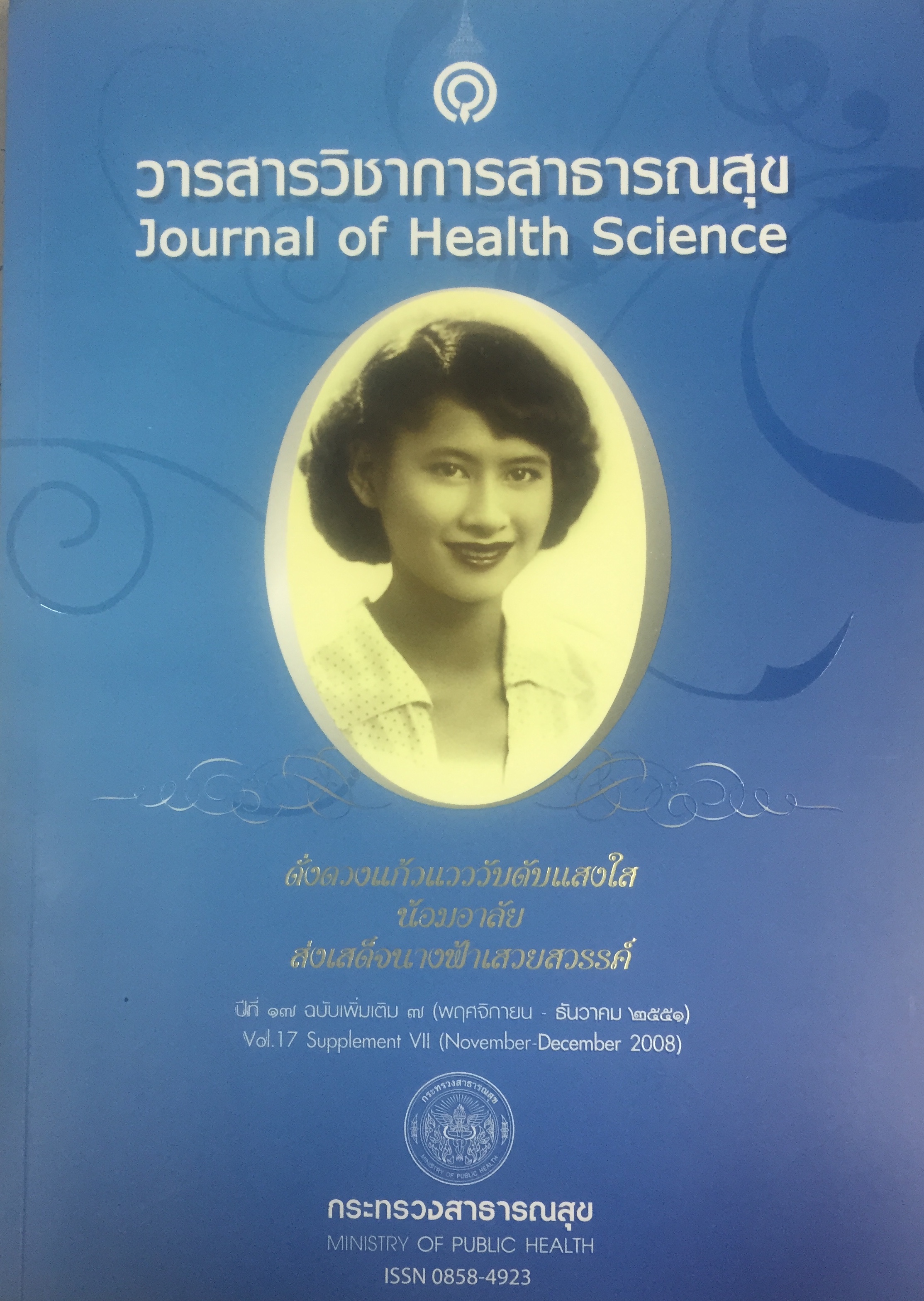การสร้างเสริมศักยภาพของแกนนำสุขภาพประจำครอบครัว
คำสำคัญ:
capacity building, family health leaderบทคัดย่อ
Family health leader is the representative of family in charge for taking care of family members. The objective of this research was to compare knowledge, capacity, leadership and motivation of family health leaders in community health promotion before and after participatory training program. This quasi-experimental research with one group repeated measure was conducted at Moo 7, Ta Bunmee Subdistrict, Ko Chan District, Chon Buri Province during September 2005 to March 2006. Samples were 72 family health leaders. Data was collected by using pre-post training questionnaire, observation and group discussion guideline. Statistics used were percentage, mean, standard deviation and Repeated Measure ANOVA. Results were as follows;
Of the 72 family health leaders, 75 percent were female. The average age was 40 years old, 86.1 percent were married and 52.8 percent were retailers. Average family income was 10,116 baht per month. It was reported that 89.9 percent had completed primary schools and 36.1 percent were providing health care for other familyีs members. Before the training, 80.6 percent of them had limited knowledge on health promotion and needed to be improved. After the training, 94.4 percent had better knowledgerated at a good level. Before the training, 50 percent of them had insufficient capability and needed to be improved. After the training, 88.9 percent had been better classified at a good level. Before the training, 69.4 percent of them showed low level of leadership and needed to be improved. After the training, 61.1 percent were better and ranked at a good level of leadership. The result also revealed that knowledge, capability, leadership, the motivation for taking care of themselves and other family members as well as community health promotion after the training became better than those before the training, with statistically significance (p < 0.05).
Therefore, the Primary Health Care Division should encourage and support the provincial health offices to continue apply the training program to empower family health leaders in order to multiply in number and enhance their ability as representatives at family level and collaborate with Village Health Volunteers (VHVs.) in community health promotion activities.
Downloads
ดาวน์โหลด
เผยแพร่แล้ว
วิธีการอ้างอิง
ฉบับ
บท
การอนุญาต
ลิขสิทธิ์ (c) 2018 วารสารวิชาการสาธารณสุข

This work is licensed under a Creative Commons Attribution-NonCommercial-NoDerivatives 4.0 International License.







